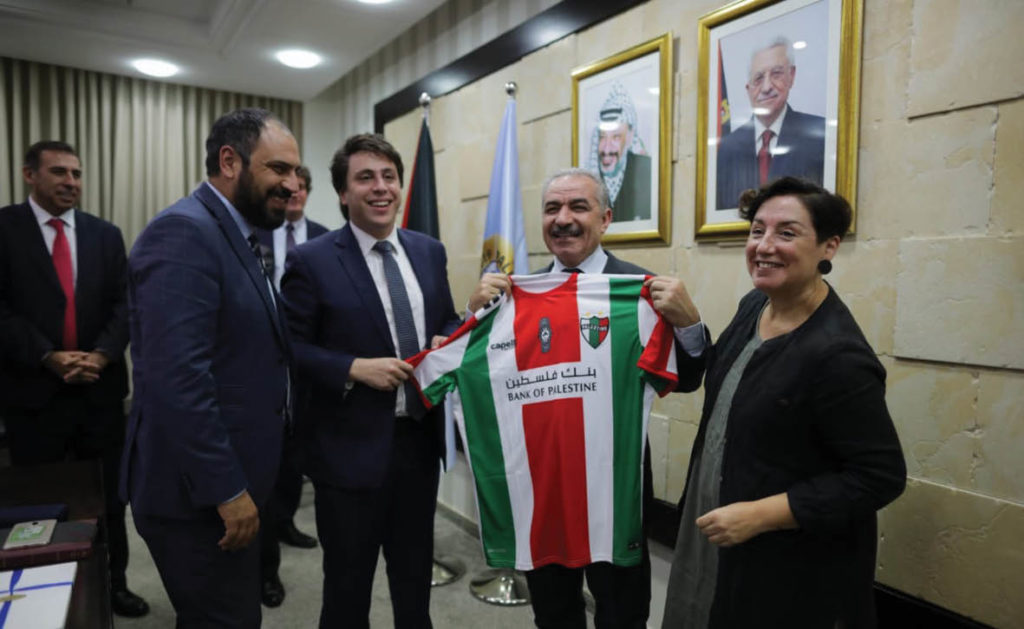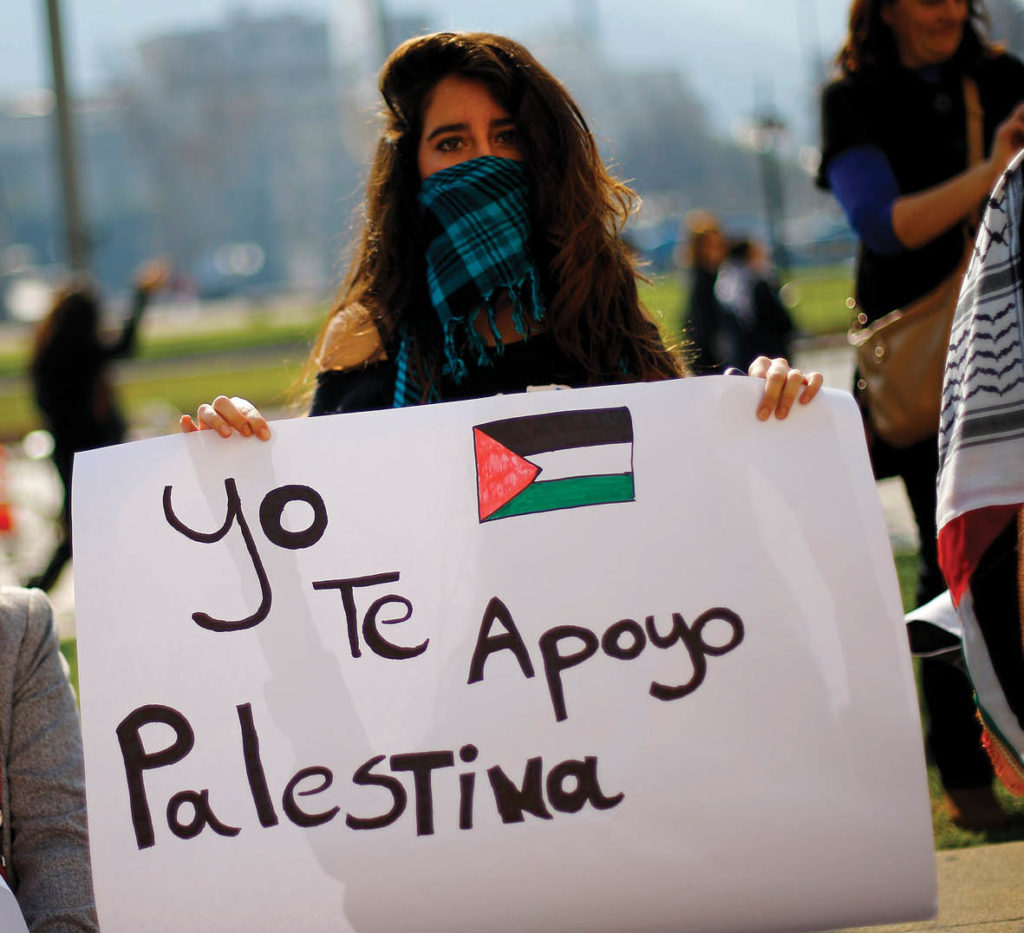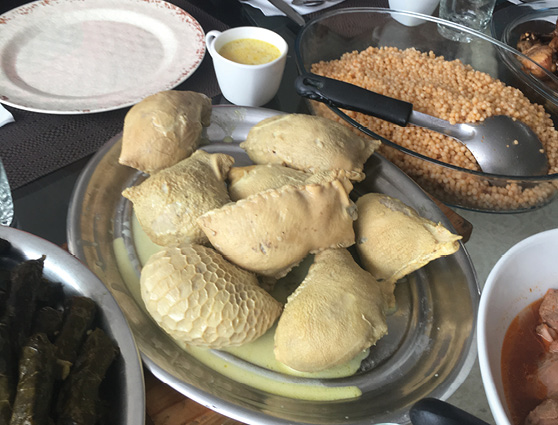Translated by Xavier Abu Eid
To refer to the Palestinian community in Chile is literally to speak equally about Chile and Palestine. As some estimations suggest that as many as close to half a million Palestinians and their descendants of various generations live in Chile, the sons and daughters of Palestine have become an integral part of the country’s social fabric; they enjoy a unique status and positive appreciation from the rest of the close to 19 million Chilean nationals.
Most Palestinian immigrants came from the Bethlehem area, including Beit Jala, and Beit Sahour. Others have come from Jerusalem, Ramallah, Beit Safafa, Silwan, Jifna, Bir Zeit, and Taybeh, among others. They began their lives in Chile as street merchants, then moved into formal commerce, and have turned into leading founders of Chile’s national industry. Mostly a rural country in the past, Chile’s process of industrialization was in many aspects led by Palestinians, particularly in the textiles sector. Others became active in banking services, retail, and a diversity of other economic areas. Thus, some of the first industries expropriated by the government of President Salvador Allende (1970–1973) belonged to the Bethlehemite families (Abu) Yarur, Hirmas, and Said, as well as the Sumar family from Beit Jala.

The contributions made by Palestinians in Chile reach beyond the economy, however, and involve all aspects of society. For example, a significant number of parliamentarians have been of Palestinian origin, beginning in the 1940s, and some have been cabinet members. In fact, the current minister of women’s affairs is a descendant of the Jarufe (Kharoufe) family from Beit Jala. In the arts and culture, national awards have been given to individuals of Palestinian origin. In sports, the first Chilean to obtain a gold medal in the Olympic Games was Nicolas Massu (Massou), originally from Beit Jala. In general, the contributions made by Palestinians to Chile in various fields and aspects is not only unquestionable; it is well acknowledged by Chileans.

Palestinian presence permeates the entire country. A Chilean saying states that for a town to be referred as such, there are three requisites: it must have a priest, a police officer, and a Palestinian. This statement, made by president-at-the-time Ricardo Lagos in an address by to the Palestinian community, has become rather popular.
Immigration to Chile from Palestine dates back to the end of the nineteenth century and extended into the twentieth century, with one peak in the years following the 1948 Nakba, and another, albeit smaller peak after the 1967 Israeli occupation of the West Bank and Gaza Strip.
Palestinians’ geographic distribution has given rise to numerous Palestinian community organizations that are spread all over the country, reflecting another distinctive aspect of our community: it enjoys a diversity of organizations, the history of some reaching back more than 100 years. They include schools, charitable organizations that benefit Palestinians and non-Palestinians as well as our people in the beloved homeland, and social organizations that include clubs and associations solely aiming to defend the inalienable rights of the Palestinian people.
There is practically no city in Chile without a club that brings together the local Palestinians.
We expect for Chile to be vocal when it comes to the respect of international law and human rights in Palestine. Today, for example, the largest committee in the Chilean congress is the Committee of Solidarity with Palestine that involves 100 out of the 155 members.
It would be impossible to speak of the Palestinian community in Chile without talking about football, our biggest pride. Club Deportivo Palestino, a team created around 1920, has for decades held very high the colors of the Palestinian flag, both in Chile and in Latin America – while elsewhere many attempts were made at deleting Palestine and her people from the map. Here in the southern country, every weekend the flag of Palestine is raised in a different stadium, with local media showing our colors and flag. The team is sponsored by Bank of Palestine.
From Chile, we continue to work and dream every day – just like any other Palestinian – that one day soon, we will see a liberated, free Palestine where people live in peace.
Just as the Palestinian community is part of Chile’s social fabric, it is also inherent to Palestine’s social fabric and identity. As President Abbas said during his first visit, “I came from Palestine to Palestine.” We are the guardians of an old Palestine. In Chile, we still eat dishes that in Palestine have become merely a part of memories. In any home or restaurant, you can regularly eat massareen (stuffed intestines), and charshat (stuffed stomach) is another common dish. The majority still speak Arabic with the “chaf” (pronounced tsh). Here, the Knafeh is “tshnafe,” and it is not from Nablus but from Bethlehem, i.e., without cheese.

In other words, in Chile we live and keep a share of Palestine not only in our hearts but in all aspects of our daily lives. We are Chileans, yes, but undoubtedly, we are also Palestinians.


